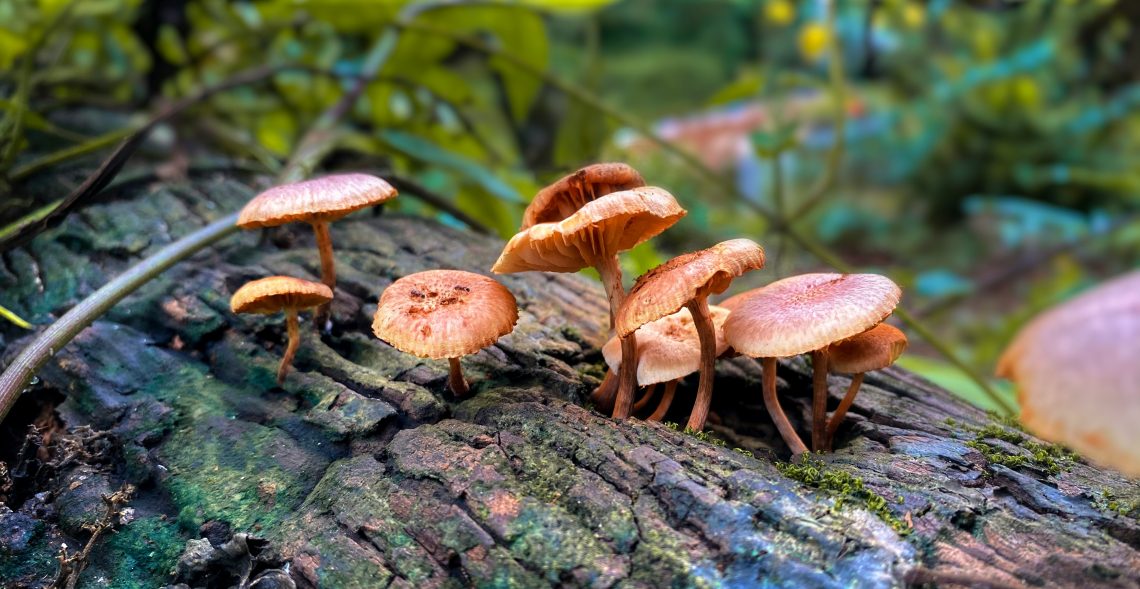The world of alternative medicine is constantly evolving, with recent studies shedding light on the potential medical benefits of magic mushrooms. These fungi, also known as psilocybin mushrooms, have been used for centuries in various cultures for their psychoactive properties. Today, science is beginning to explore their therapeutic potential in treating mental health conditions.
Research suggests that psilocybin, the active compound in magic mushrooms, may be effective in alleviating symptoms of depression, anxiety, and PTSD. Clinical trials have shown promising results, with some participants experiencing significant improvements after just a few sessions. This new wave of research has sparked interest in the broader medical community.
Understanding how psilocybin works involves examining its impact on the brain. Studies indicate that it can promote neural connectivity, potentially leading to long-lasting positive changes in mood and cognition. This feature has opened the door for further exploration into its applications in mental health treatment.
Historical Use of Psilocybin
Historically, psilocybin has been used in various cultures for spiritual, medicinal, and ritualistic purposes. Its use has evolved over time, with modern society rediscovering its potential benefits.
Traditional Practices
Psilocybin mushrooms have been used for thousands of years by indigenous peoples, particularly in Central and South America. The Aztecs, for instance, referred to these mushrooms as teonanácatl, meaning “flesh of the gods”. They used them in religious ceremonies to communicate with deities and explore the spiritual world.
Mayan and Mazatec cultures also incorporated psilocybin mushrooms into their rituals. Shamans often consumed the mushrooms to gain insight and perform healing ceremonies. These practices were generally held in high regard, and the mushrooms were considered sacred.
Modern Resurgence
Interest in psilocybin resurfaced in the mid-20th century. Researchers began to study its potential therapeutic effects, leading to a wave of scientific inquiry. In the 1960s, psilocybin gained prominence in the countercultural movement, where it was used recreationally and for personal growth.
Today, there is a renewed interest in psilocybin for its mental health benefits. Clinical trials explore its efficacy in treating conditions like depression, anxiety, and PTSD. Researchers continue to investigate the neurobiological mechanisms behind its effects, aiming to develop safe and effective treatments.
Neurological Effects
Magic mushrooms are known for altering brain connectivity and promoting neuroplasticity. Research highlights how these effects potentially benefit conditions like depression and anxiety.
Brain Connectivity
Magic mushrooms have been found to enhance brain connectivity. The active compound, psilocybin, seems to disrupt and reorganize brain networks temporarily. This reorganization allows for increased communication between regions of the brain that usually don’t interact.
Functional MRI (fMRI) studies show that this leads to a more unified, synchronized brain activity. This enhanced connectivity can result in changes to perception, thought patterns, and emotional processing.
Neuroplasticity
Neuroplasticity refers to the brain’s ability to adapt and rewire itself. Psilocybin encourages the growth of new neural connections, which can help in restructuring harmful neural pathways. This can be particularly beneficial for individuals suffering from mental health disorders.
Studies indicate that increased neuroplasticity can lead to improvements in cognitive flexibility, emotional resilience, and even recovery from traumatic experiences. Enhanced neuroplasticity helps in forming healthier habits and thought processes, aiding long-term emotional and mental well-being.
Psychotherapeutic Potential
Magic mushrooms show promise in treating depression, alleviating anxiety, and supporting individuals with PTSD. Each area is explored below with specific details and research findings.
Depression Treatment
Psilocybin, the active compound in magic mushrooms, has been studied for its effects on depression. Clinical trials indicate significant reduction in symptoms after controlled psilocybin sessions. Participants reported mood improvements lasting several weeks to months post-treatment.
Brain imaging studies reveal increased neural flexibility and connectivity, likely contributing to these therapeutic benefits. Despite positive outcomes, it’s crucial for treatment to be supervised by medical professionals due to potential risks and varying individual responses.
Anxiety Alleviation
Research shows that magic mushrooms can help reduce anxiety, especially in patients with terminal illnesses. Psilocybin-assisted therapy has led to significant decreases in anxiety levels, enhancing patients’ quality of life.
Participants describe a sense of peace and acceptance regarding their condition, facilitated through guided sessions. This potential for improved mental well-being has garnered attention for psilocybin as a complementary treatment in palliative care.
PTSD Support
There is growing interest in psilocybin’s role in treating PTSD. Studies suggest it may help reprocess traumatic memories and reduce the severity of symptoms. Controlled therapy sessions with psilocybin have shown promise in creating conditions for emotional breakthroughs.
Neuroimaging data supports these findings, indicating changes in brain areas related to fear and memory. This can lead to lasting symptom relief and improved daily functioning. Nonetheless, more extensive research is required to fully understand its potential and provide clear treatment guidelines.
Beneficial Compounds
Magic mushrooms contain compounds that have shown potential benefits for mental health conditions. The two primary compounds of interest are Psilocybin and Psilocin, which contribute to the mushrooms’ psychoactive effects.
Psilocybin
Psilocybin is the prodrug that is converted into Psilocin in the body. It’s known for its psychoactive properties and has been studied for its potential therapeutic effects. Research indicates that Psilocybin can help alleviate symptoms of depression, anxiety, and PTSD.
This compound interacts with serotonin receptors in the brain, which plays a role in mood regulation. Studies have demonstrated that Psilocybin can induce mystical experiences, leading to lasting changes in mood and perception. Controlled usage has shown to bring about significant improvement in well-being and quality of life for patients with treatment-resistant conditions.
Psilocin
Psilocin is the active form into which Psilocybin is converted once ingested. It directly interacts with the brain’s serotonin receptors, modulating neural circuits involved in mood, cognition, and perception. Psilocin binds to the 5-HT2A receptor, crucial for its psychedelic effects.
Studies highlight that Psilocin can foster increased connectivity between different brain regions. This increased neural plasticity helps patients break free from entrenched patterns of negative thinking. Additionally, Psilocin has been reported to reduce symptoms in individuals suffering from cluster headaches, with effects lasting beyond the immediate dosing period. The therapeutic potential of Psilocin continues to be a significant focus of clinical research.
Safety and Risks
Magic mushrooms, while offering some potential benefits, come with both side effects and specific contraindications that users should be aware of.
Side Effects
The consumption of magic mushrooms can result in a variety of side effects. Commonly reported effects include nausea, vomiting, and dizziness. Some users may also experience anxiety and paranoia, particularly at higher doses.
Psychological side effects may be more pronounced in individuals with preexisting mental health conditions. Hallucinations and changes in perception are typical and can sometimes lead to distress.
Physical side effects can range from mild to severe. Increased heart rate, blood pressure, and temperature are also possible. In rare cases, prolonged use or high doses can lead to more serious health issues. Users should be mindful of these potential risks.
Contraindications
Magic mushrooms are not safe for everyone. Individuals with a history of mental health disorders like schizophrenia or bipolar disorder should avoid using them. These substances can exacerbate symptoms or provoke new episodes.
Certain medications can interact negatively with magic mushrooms. For example, those on SSRIs or other antidepressants should approach with caution.
Pregnant or breastfeeding women are advised against their use due to potential risks to the fetus or infant. Additionally, individuals with cardiovascular diseases or other severe medical conditions should avoid use as it may worsen their health issues.
Careful consideration and consultation with a healthcare provider are essential before consuming magic mushrooms.
Frequently Asked Questions
Psilocybin mushrooms show potential for various therapeutic uses, particularly in mental health. Research has demonstrated promising results for conditions such as depression and anxiety.
What potential therapeutic uses do psilocybin mushrooms have?
Psilocybin mushrooms are being studied for their potential to treat a variety of conditions, including depression, anxiety, PTSD, and addiction. The active compound, psilocybin, may help in reshaping brain circuits and improving emotional processing.
How might psilocybin contribute to the treatment of mental health disorders?
Psilocybin may enhance neuroplasticity, reduce symptoms of anxiety and depression, and disrupt negative thought patterns. Its effects on the brain’s serotonergic system can lead to improved mood and emotional regulation.
What are the findings from clinical studies on psilocybin for depression management?
Clinical studies indicate that psilocybin can produce rapid and sustained reductions in depressive symptoms. Participants have reported significant improvements after just one or two sessions, with effects lasting for several months.
Are there any neurological benefits associated with the use of psilocybin mushrooms?
Research suggests that psilocybin may promote neurogenesis, or the growth of new neurons, and enhance overall brain connectivity. These neurological changes are believed to support cognitive flexibility and emotional resilience.
What are the risks and considerations for using psilocybin in a therapeutic setting?
While psilocybin shows promise, its use must be carefully managed. Potential risks include psychological distress during the experience, and it must be administered in a controlled environment by trained professionals. Screening for contraindications and providing proper integration support are essential.
How does the efficacy of psilocybin compare with traditional pharmaceuticals for psychiatric conditions?
Psilocybin has shown comparable or even superior efficacy to traditional pharmaceuticals in some studies. Unlike some medications that require daily use, psilocybin’s effects can be long-lasting after a few sessions. However, further research is needed to fully understand its long-term benefits and limitations.
Read more lifestyle articles at ClichéMag.com
Images provided by Deposit Photos, BingAI, Adobe Stock, Unsplash, Pexels, Pixabay & Creative Commons




